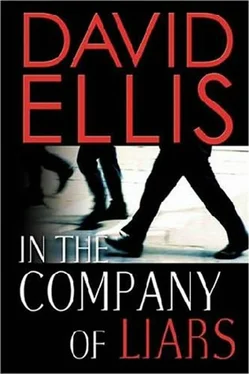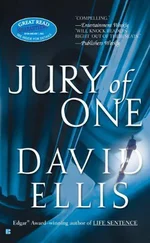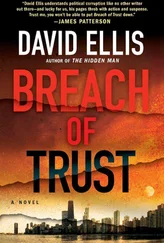ONE DAY EARLIER
SUNDAY, APRIL 11
McCoy sets a steaming cup of coffee on her desk and drops down in her chair. She hasn’t had a weekend off this entire year, but no one has told her to come in. This operation does not know weekends from weekdays. The bad guys don’t take days off, so neither will she.
Her office is nothing short of disastrous. She didn’t inherit the typical female gene for neatness or cleanliness. Stacks of paper line her floors, force her to walk an obstacle course just to reach her desk. She has received countless comments on this from her colleagues, and no, she doesn’t prefer it this way, but it is what it is. Maybe they should have taught a course at Quantico on this.
She has made an exception, however, for this operation. She had a new set of cabinets brought in, devoted to the files on this case. It has helped dramatically, being able to call up a file on a moment’s notice. She has had her setbacks, falling into her typical practice of setting down a piece of paper somewhere and forgetting where, but she even planned for that inevitability, making an extra copy of everything in her file and placing it somewhere else-her master files.
Owen Harrick walks into her office, dressed informally-a sweater and jeans-like McCoy. “Haroon sent this e-mail yesterday,” he says.
With the assistance of a warrant signed by a federal magistrate, the FBI is monitoring Ram Haroon’s e-mail, not only the address assigned to him by the university but also another address Haroon uses,pakistudent@interserver. com. It is from this address that Haroon has been communicating on sensitive issues. Haroon rarely uses this address, which makes any correspondence he sends from it raise flags all the more quickly with the Bureau.
The e-mail that Harrick places on McCoy’s desk is one sentence:
Please inform MAB that communication will be sent early next week by mail.
She reads the initials-MAB-and feels a shudder, a knot seizing her stomach.
“Let’s watch the post office, then,” she says easily to Harrick, because she wants to show calm to her partner. He is undoubtedly feeling the pressure as well. Neither of them has ever worked on anything nearly so consequential.
“He’s talking about Muhsin al-Bakhari, isn’t he?” Harrick asks.
“Who knows, Owen? Let’s just do our job.” McCoy takes a piece of paper and writes out a quick to-do list. They will put people at the post offices around the state university. They will have to be ready, starting tomorrow, for a package that Ramadaran Ali Haroon will be sending to his partners overseas.
ONE DAY EARLIER
SATURDAY, APRIL 10
The Pakistani government attributed the bombing at Baluchistan University to an aerial assault by the Soviet Union. The communist-controlled Afghan security service, the KHAD-Khedamat-i-Ettela’at-i-Daulati-had instituted countless air and ground attacks in Pakistan since the country had become the focal point for Afghan resistance to the Soviet invasion. The Afghan refugees had pooled in various parts of Pakistan, including the Baluchistan province. Ram Haroon had seen some of the AfghaniPathansin Quetta; they were generally confined to the refugee camps, but they were sometimes seen in the markets. He remembers their bruised, creased faces, their defeated postures. People who had lost their homes, sometimes their families, clinging to little more than life itself.
Ram’s mother, a university professor, and his four-year-old sister accompanying her mother to class were two of the nineteen casualties of the attack. Ram recalls the moment that he heard the news in utter darkness, his eyes squeezed shut as he and his father sat on the floor of their home.
Mother was gone. Beni was gone.
It was the Americans, they said.
Ram listened to them only because he was looking for magic healing words, and it was only afterward that their words registered in any meaningful way.
Three weeks passed. His mother and sister were buried. Ram’s father did not work, could not work. Father would leave at night and not speak to his son about where he went. Ram saw a change in his father but attributed it to grief, when a part of him knew all along it was something else.
Five weeks after the death of his mother and sister, Ram’s father moved Ram and himself from Baluchistan to Peshawar, ground zero in the arming of the mujahedin against the Soviet aggression. “We must put this behind us,” Ram’s father told him. Ram was hardly able to comprehend, still reeling from the loss of his mother and sister. Now Father wanted to leave the only home he had known?
“Some day I will explain it to you,” Father promised.
Ram Haroon wipes the sweat from his face and focuses on his computer in his student dormitory. He types in the name on the e-mail and thinks hard about the words to write.
Please inform MAB that communication will be sent early next week by mail.
Ram types in the web address-pakistudent@interserver. com-hits the “send” button, and the document disappears. He looks at the photographs by his bed: his father, mother, and sister. Beni would be twenty-two years old if she had survived the bombing. She would be a student, like Mother was, probably a future professor, or a doctor, or lawyer. Everything would be different. They never would have moved to Peshawar.
Ram moves over to his small bed and cradles the photographs in his hand. “My time may be coming, too,” he says to them. At least in his case, it will be his choice.
TWO DAYS EARLIER
THURSDAY, APRIL 8
There’s a guy, but you probably wouldn’t approve.” Jessica’s evasive comment to Allison, last December, over dinner.
“Tell me,” Allison prodded.
“You’ll just tell me no.”
Allison drew back. It was true, she had never failed to give her opinion on her daughter’s choice of boyfriends. But she had never forbade her daughter from acting on her own instincts, and certainly had no place doing so now, when Jessica was twenty and living at her college dorm.
She knew Jess, however distant they had grown. Jessica could have avoided the subject, or lied about it. She did neither. She had broached the topic and left it dangling. Jessica wanted her to inquire, Allison figured.
“Tell me,” Allison said again.
Paul Riley shows Allison in to his office. It has a gorgeous view, this corner office, and Paul has plenty of memorabilia to decorate the two walls without windows. Artists’ etchings of his trial work, photos of Paul with prominent officials. Paul Riley, after all, is the lawyer who prosecuted Terry Burgos, the man who killed six girls on a college campus about twenty years ago. Paul was the guy Allison wanted, when suspicion first gathered around her after Sam’s death. Since he begged off representing her, she persuaded him to represent Jessica.
“How are you holding up?” he asks her, and he knows the question is loaded.
“I’m fine, Paul, thanks. You?”
Paul defers as he always does. “Twenty balls in the air,” he says.
“I’m concerned with one particular ball.”
“Sure.” Paul plays with a cufflink on his starched shirt. His shirt is soft blue, matching his eyes.
“She needs to understand the importance of not straying from her testimony, Paul.”
“She knows that, Allison. I know that. There’s only so much I can share with you now, obviously.” He smiles. His loyalty, of course, is now to his client, Jessica.
“She came to my house about eight-thirty that night, the night Sam was killed,” Allison says. “She had been at school all day. I got home close to two in the morning. Jess was asleep on the couch.”
Paul nods but doesn’t speak. He will not share his conversations with Jessica to anyone, not even Jessica’s mother.
Читать дальше












